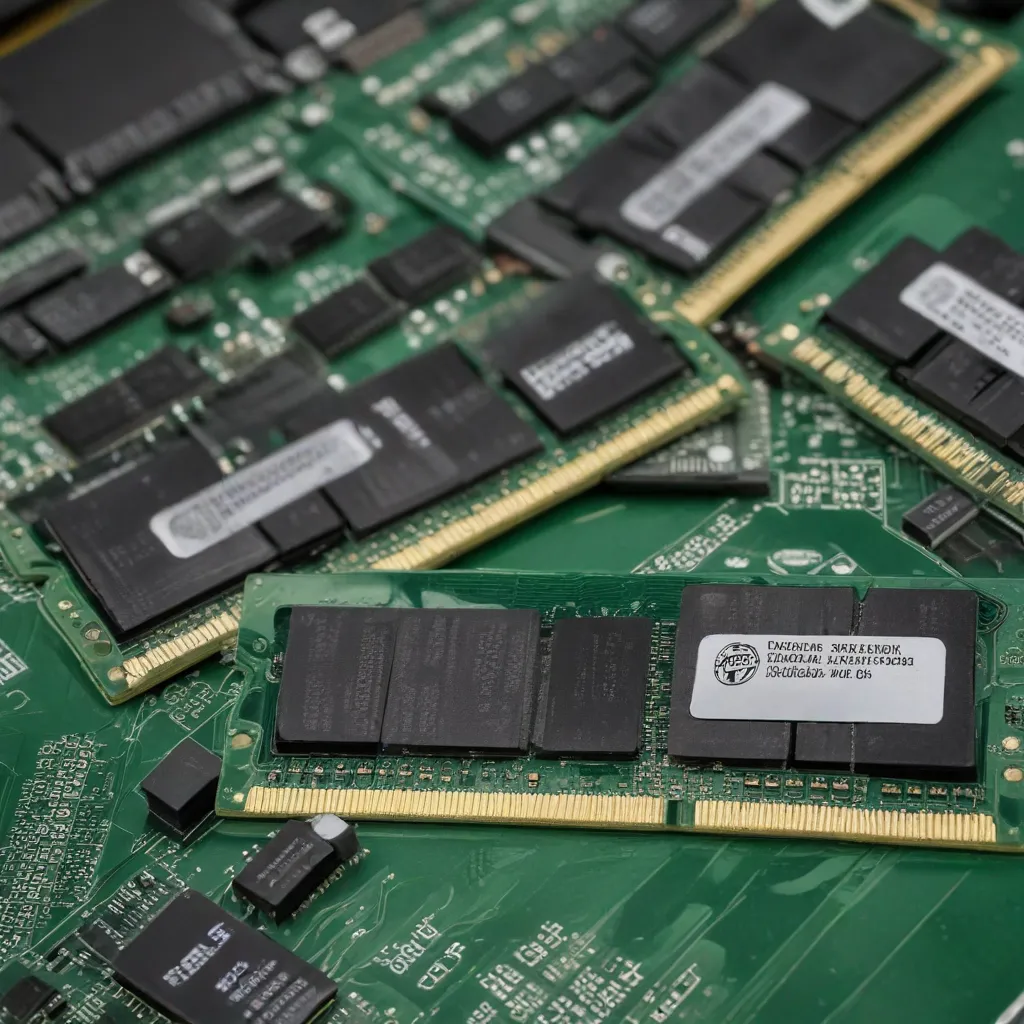
Computer Hardware
Computer Memory
Random Access Memory (RAM)
At the heart of every modern computer lies a crucial component known as random access memory (RAM). This high-speed storage allows your system to quickly access and process the data needed for running applications, multitasking, and powering your digital experiences.
Memory Modules
RAM comes in the form of memory modules, typically referred to as DIMM (Dual Inline Memory Module) or SODIMM (Small Outline Dual Inline Memory Module) for laptops and compact devices. These modules contain the memory chips and connectors that interface with your computer’s motherboard.
Memory Slots
Your computer’s motherboard has designated memory slots where these RAM modules are installed. The number of available slots, their location, and compatibility with specific memory types are all important factors to consider when upgrading or replacing RAM.
Troubleshooting Memory Issues
Identifying Faulty RAM
When your computer starts exhibiting strange behaviour, such as frequent crashes, freezes, or error messages, it could be a sign of faulty RAM. Diagnosing the issue and identifying the problematic memory module is the first step in resolving the problem.
Memory Diagnostics
Utilising memory diagnostic tools, like Windows Memory Diagnostic or MemTest86, can help pinpoint the source of the issue. These tools will thoroughly test your RAM and report any errors or instability.
Error Messages
If your computer is displaying specific error messages related to memory, such as “Memory Management” or “MEMORY_MANAGEMENT” blue screen errors, it’s a clear indication that you need to investigate your RAM modules further.
Replacing RAM Modules
Once you’ve identified the faulty RAM, it’s time to replace the problematic module(s). However, before you can do so, you need to ensure that the replacement RAM is compatible with your system.
RAM Compatibility
Compatibility is crucial when upgrading or replacing RAM. Factors like memory type (DDR3, DDR4, etc.), speed, capacity, and even the number of memory “ranks” (single, dual, or quad) must all be considered to ensure the new RAM will work seamlessly with your computer.
RAM Installation
Properly installing the new RAM modules is also essential. Make sure to power down your system, discharge any static electricity, and follow the manufacturer’s instructions for inserting the modules into the designated slots on your motherboard.
Upgrading Computer Memory
Memory Capacity
Increasing the amount of RAM in your computer can significantly improve its performance, especially when it comes to memory-intensive tasks like video editing, 3D rendering, or running multiple applications simultaneously.
Memory Speeds
In addition to capacity, the speed of your RAM also plays a crucial role in overall system performance. Faster memory, measured in MHz (megahertz), can provide a noticeable boost in responsiveness and throughput.
Memory Types
The specific type of RAM (DDR3, DDR4, etc.) must match the requirements of your computer’s motherboard and processor. Upgrading to a newer, more advanced memory type can unlock additional performance benefits.
Memory Performance
The amount and speed of your RAM can have a profound impact on the overall performance of your computer, especially when it comes to multitasking and gaming.
Multitasking and RAM
When you have multiple applications and browser tabs open simultaneously, your computer’s RAM is responsible for quickly accessing and switching between these various tasks. Insufficient or slow RAM can lead to sluggish performance and system freezes.
Gaming and RAM
For gaming enthusiasts, RAM plays a crucial role in delivering smooth frame rates and responsive gameplay. Newer game titles and high-resolution graphics often require more memory to ensure a seamless, immersive gaming experience.
Computer Maintenance
Hardware Upgrades
Maintaining the health and performance of your computer often involves upgrading key hardware components, such as the RAM.
RAM Upgrades
Upgrading your RAM can breathe new life into an aging system, significantly improving its responsiveness and ability to handle modern software and workloads.
Motherboard Compatibility
When planning a RAM upgrade, it’s essential to ensure that the new modules are compatible with your computer’s motherboard and other hardware components. Consulting your system’s documentation or manufacturer’s recommendations can help you make the right choice.
Preventive Maintenance
Alongside hardware upgrades, regular preventive maintenance can help extend the lifespan of your computer and keep it running at peak performance.
Dust Removal
Accumulation of dust, dirt, and debris inside your computer’s case can impede airflow and lead to overheating, which can negatively impact the performance and longevity of your RAM and other components. Regularly using a can of compressed air or a portable vacuum cleaner can help keep your system clean.
Temperature Monitoring
Keeping an eye on your computer’s internal temperatures, especially in the areas surrounding the RAM modules, can help you identify potential issues before they become more serious. Many system monitoring utilities can provide real-time temperature data to help you stay informed.
Remember, when it comes to upgrading or replacing RAM, always ensure that the new modules are compatible with your system and follow the manufacturer’s installation instructions carefully. With the right knowledge and attention to detail, you can unlock the full potential of your computer’s memory and enjoy a seamless, high-performance experience.
If you’re looking for professional IT support or need assistance with your computer’s hardware upgrades, be sure to check out the services offered at IT Fix. Our team of experienced technicians is here to help you get the most out of your technology.












